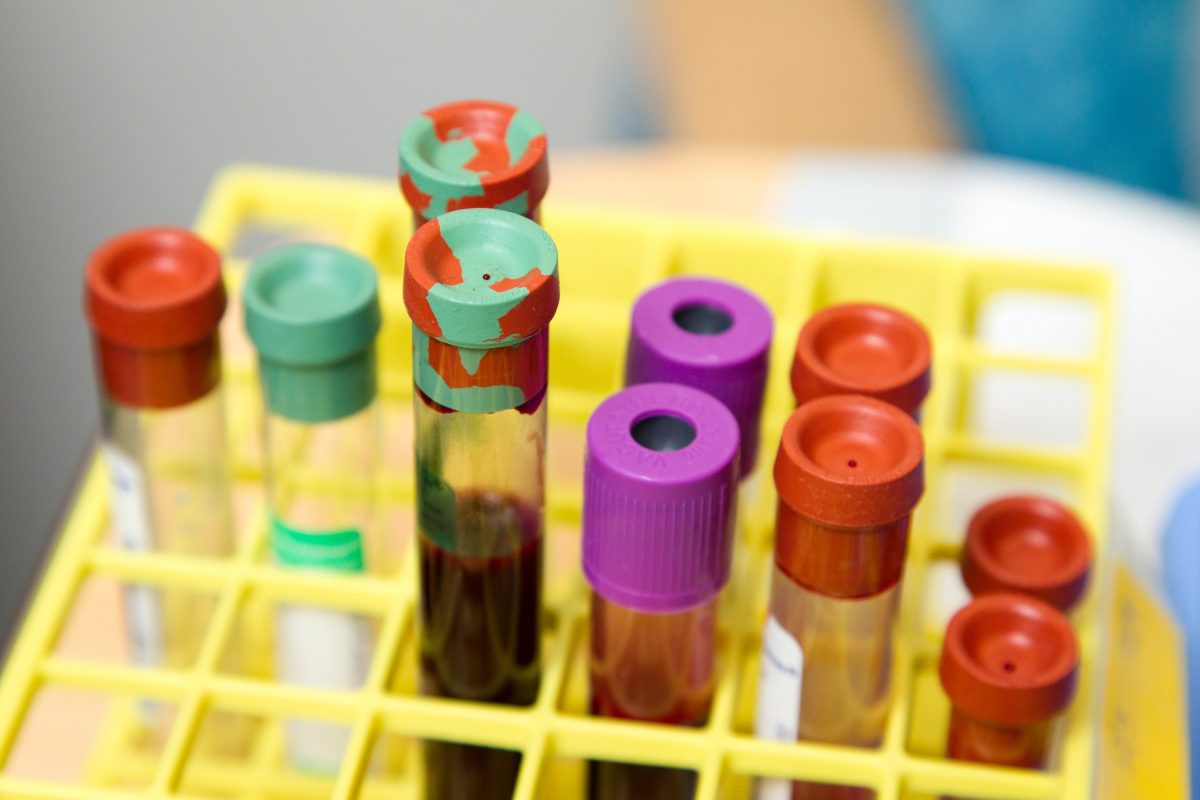
UC San Diego Health Launches Novel Coronavirus Blood Testing to Identify Past Exposure
University of California San Diego Health via Newswise – Serological tests look for antibodies produced in response to infection, and will help determine who may have potentially acquired immunity to COVID-19—and who remains at risk.
Newswise — Clinical laboratory physicians and scientists at UC San Diego Health have launched a pair of serological tests that will look for novel coronavirus antibodies — evidence in persons tested that they have previously been infected by SARS-CoV-2, the viral cause of COVID-19, even if they never experienced tell-tale symptoms.
The effort will be overseen by the UC San Diego Center for Advanced Laboratory Medicine (CALM), which houses the majority of UC San Diego Health’s Clinical Laboratories and related research activities and is already the hub for the health system’s in-house PCR-based diagnostic testing of patients and persons suspected of having COVID-19.
“This is part of the next wave of testing,” said Ronald W. McLawhon, MD, PhD, director of CALM and UC San Diego Clinical Laboratories and chief of the Division of Laboratory and Genomic Medicine. “It’s intended to answer those growing questions about who has been infected and who might still be vulnerable to exposure.”
The effort is built upon two assays developed by Diazyme Laboratories, Inc., a division of General Atomics, based in Poway, Ca. The tests analyze blood samples, similar to those taken for routine clinical reasons, for the presence of two of the body’s five classes of antibodies: IgG and IgM. Antibodies are proteins used by the immune system to recognize and help neutralize pathogenic invaders, such as viruses or bacteria. The IgG antibody is the most abundant type; IgM is one of the first antibody types produced by the body’s immune system to fight a new infection. Looking for these two types of antibodies together, rather than one, increases the treating physician’s confidence in being able to differentiate between a recent infection versus a past exposure to the SARS-CoV-2 virus.
“These tests have already gone through an initial assessment and validation by Diazyme,” said Robert Fitzgerald, PhD, professor of clinical pathology at UC San Diego School of Medicine and director of the Toxicology Laboratory and associate director of Clinical Chemistry Laboratory at UC San Diego Health. “We’ve put them through our validation processes as well, including comparing samples from patients known to have COVID-19, healthy volunteers and blood samples from 2018, long before the virus appeared.”
McLawhon said initial capacity for serological testing will be a combination of up to 1,200 of IgM or IgG antibody tests per day, with results within 24 hours. The system, he said, is scalable.
The presence of novel coronavirus antibodies can reveal persons who may have unknowingly contracted COVID-19 and recovered, but never showed signs of infection. The first testing cohort will likely be health care workers, which will help identify who are now in a convalescent phase after a documented exposure and, perhaps, may have acquired at least some degree of immunological protection. At this point, it has not been established whether the presence of IgG antibodies is an indicator of immunity to SARS-CoV-2 infection or re-infection, as seen with many other viral infectious diseases.
Serological testing will also be used to assess health care workers who are suspected of having COVID-19, but not tested by PCR and are recovering at home under quarantine.
McLawhon said the twin Diazyme tests have shown high sensitivity and specificity, particularly compared to most point-of-care, rapid-response serological tests for novel coronavirus now flooding the international market. Thus far, only one rapid serological test, which claims a result within 15 to 20 minutes, has received Emergency Use Authorization from the U.S. Food and Drug Administration (FDA).
“There are a lot of these unproven rapid tests out there. Some are performed using technology found in today’s pregnancy tests, using a drop of blood,” said McLawhon. “But none have gone through FDA review nor have they been validated in terms of their clinical performance. Many do not perform well. The results aren’t clear-cut. There’s a lot of subjectivity in user interpretation. And, they can do only one sample at a time, which means a staff member might reasonably be able to collect and complete between four to a dozen tests in an hour.”
Aside from identifying past coronavirus exposure, serological testing will likely be a valuable epidemiological tool. There are expansive plans to use blood tests to map where the virus has spread, which cities, states and regions may have developed some degree of “herd immunity” to future outbreaks and which places and populations remain at greatest risk. The Centers for Disease Control has announced plans for three such clinical trials across the country.
Serological (antibody) tests are not considered frontline tests for detecting a current or active infection. They have clear limitations for diagnosing new coronavirus infections because the immune response and antibody production varies by individual. There is often a lag of several days — as much as five to 10 days — between initial virus exposure and the first produced antibodies detected in the blood. During this time, called the “window period,” an infected person can be contagious, but may not be displaying any symptoms.
“You can’t use the serological testing to differentiate timing of infection,” said Michael J. Kelner, MD, director of the Clinical Chemistry Laboratory at UC San Diego Health. “They can’t be done in lieu of a PCR test. But they can tell us who has been exposed — or not — and that’s important. As we go forward, we’ll see if they can help answer more questions.”
The coronavirus blood testing program at UC San Diego Health is, for now, open-ended.
“The greatest strength of our laboratory program at CALM is the team of clinicians who bring different expertise to the problem of managing this pandemic,” said Steve Gonias, MD, PhD, chair and chief of the Department of Pathology at UC San Diego School of Medicine. “As a team, our goal is to continue to develop the most advanced assortment of diagnostic laboratory tests to assess COVID-19 in the state.”
“There are worries about subsequent waves of outbreaks elsewhere or that the virus might reappear in places,” said McLawhon. “No one can yet say what will happen. Right now, I’m guessing we’ll be doing this type of testing for at least another 18 months. Or until a vaccine is developed. Or for as long as there continues to be a global pandemic.”
To read the original article click here.






